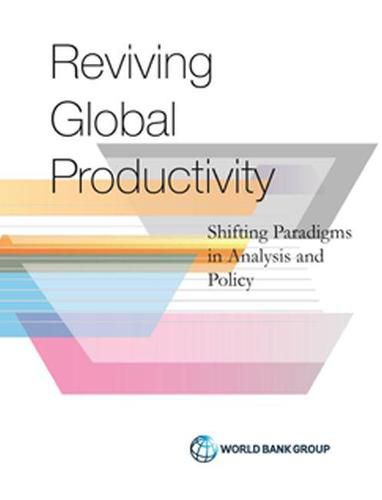Readings Newsletter
Become a Readings Member to make your shopping experience even easier.
Sign in or sign up for free!
You’re not far away from qualifying for FREE standard shipping within Australia
You’ve qualified for FREE standard shipping within Australia
The cart is loading…






The stagnation of productivity in the developing world, and indeed, across the globe, over the last two decades dictates a rethinking of productivity measurement, analysis, and policy. This volume presents a ‘second wave’ of thinking in three key areas of productivity analysis and its implications for productivity policies. It calls into question the measurement and relevance of distortions as the primary barrier to productivity growth; urges a broader concept of firm performance that goes beyond efficiency to quality upgrading and demand expansion; and explores what it takes to generate an experimental and innovative society where entrepreneurs have the personal characteristics to identify new technologies and manage risk within an entrepreneurial ecosystem that facilitates them doing so. It also reviews arguments surrounding industrial policies. The authors argue for an integrated approach to productivity analysis that incorporates both the need to reduce economic distortions and generate the human capital capable of identifying the opportunities offered to follower countries and upgrade firm capabilities. Finally, it offers guidance on prioritising policies when there is uncertainty around diagnostics and limited government capability
$9.00 standard shipping within Australia
FREE standard shipping within Australia for orders over $100.00
Express & International shipping calculated at checkout
The stagnation of productivity in the developing world, and indeed, across the globe, over the last two decades dictates a rethinking of productivity measurement, analysis, and policy. This volume presents a ‘second wave’ of thinking in three key areas of productivity analysis and its implications for productivity policies. It calls into question the measurement and relevance of distortions as the primary barrier to productivity growth; urges a broader concept of firm performance that goes beyond efficiency to quality upgrading and demand expansion; and explores what it takes to generate an experimental and innovative society where entrepreneurs have the personal characteristics to identify new technologies and manage risk within an entrepreneurial ecosystem that facilitates them doing so. It also reviews arguments surrounding industrial policies. The authors argue for an integrated approach to productivity analysis that incorporates both the need to reduce economic distortions and generate the human capital capable of identifying the opportunities offered to follower countries and upgrade firm capabilities. Finally, it offers guidance on prioritising policies when there is uncertainty around diagnostics and limited government capability